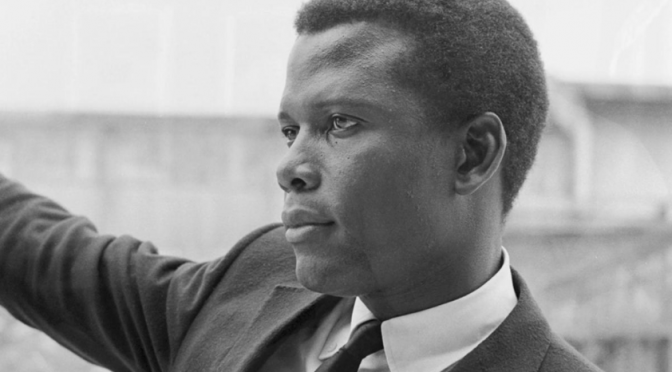Today film legend Sidney Poitier turns 92. I’ve never seen him give a bad performance, and I especially love him in To Sir, With Love, In the Heat of the Night and The Lilies of the Field, the last of which earned him an Oscar. He could have given extraordinary performances about any subjects, but Hollywood sought him out especially to help white audiences challenge their prejudices and rethink their unwitting racism.
Movie studios of the 1960s took the pulse of the culture and wanted to find a beautiful black man who seemed unimpeachably smart, brave, honest, talented and appealing—in short, a perfect black man—to make their characters come to life. But they got so much more. They got someone who felt real, natural, wise and good. There was no stiffness, no artifice, no arrogance. He was powerful, but not through violence—through reason, through integrity, through courage.
Poitier might have enjoyed having a chance at roles that didn’t always put his race front and center. But his talent, grace, insight, subtlety and decency allowed him to break through to people who seemed unreachably, permanently prejudiced at a time when America needed that more than anything. His performances were wonderful in their own right, but their influence on culture spread the importance of his characterizations far beyond the range of mere entertainment.
The performance that’s dearest to me of all of his work is not one of his tour-de-force performances like In the Heat of the Night—it’s his charming, naturalistic and deeply sympathetic performance in A Patch of Blue. The 1965 film is about a gentlemanly, intellectual and extremely kind man who befriends an abused, naïve and blind white teenager, the daughter of a trashy bigot, who has no idea that her best friend and mentor is a black man. The story sometimes gets a bit mawkish or obvious, and some of the other performances run a little over the top, but Poitier never does. As always, he gives it a quiet intensity, a sweet humor and a still, warm, humane focus.
This scene is one of the least dramatic in the film, but it shows perfectly how Poitier tells you everything you need to know about his character through his everyday expressions of humor and decency. It is in these small, perfect moments in each of his films that he becomes real, universal, a man we can all admire, a man we want in our own families. He could convincing play a friend, a romantic partner, an officer of the law, a builder of buildings and emotional bridges—someone we would all want in our lives. He was the honorable authority, the advisor, the father figure, a man who was always attractive and alluring but not overly sexualized, intense but not out of control. He was a black man who was both able and allowed to play an ideal man. And that changed everything.

